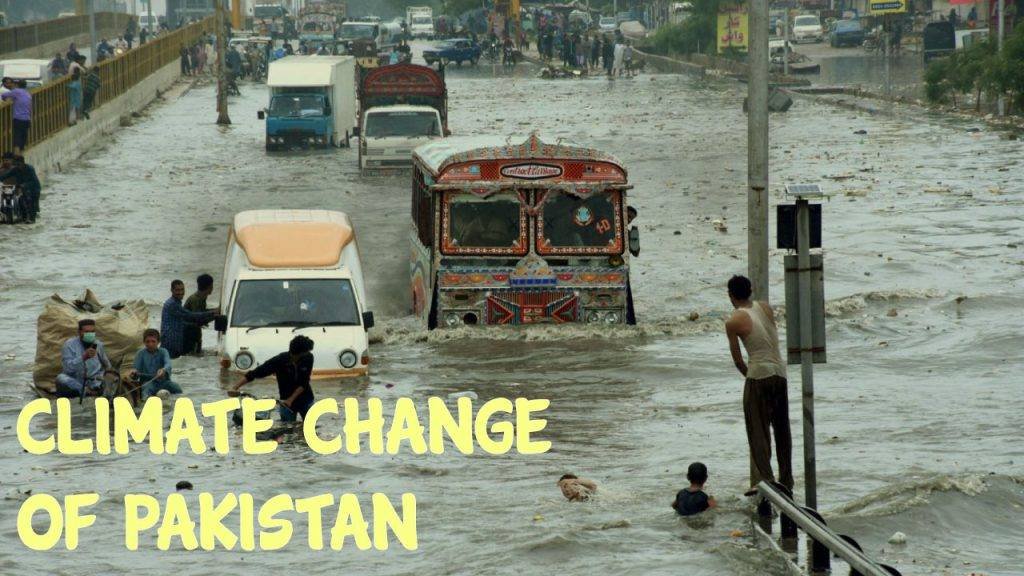Pakistan, the nation of South Asia, lies in a geological locale. Its territory region is either arid or semi-arid. The climate of Pakistan keeps changing depending on the temperature, sometimes hot and sometimes cold. These temperature changes often have a disastrous impact on the life of people. Nowadays, our country is at high risk of atmospheric instability.
Before talking about climate, let’s dive into what climate change is. Climate is characterized as the weather condition of different zone depending on temperature. Which raises the question of how does climate change occur? These changes are usually determined by the solar cycle, but often these changes are artificially caused by humankind. We live in the commercial region, and Pakistan comprises many industries equipped with lots of machinery; hence, the emission of toxic gases from industries gives rise to pollution. These gases are harmful and can cause global warming; toxic sprays and overuse of pesticides can damage the ozone layer and raise the temperature level which results in environmental changes.
Pakistan is ineffective against environmental changes; it is an agricultural country, and the nation faces progressively more danger of changeability in storms. Therefore, a flood may occur that can harm the sewage and energy beside it. Flood harms coastal areas; rising sea levels may ruin the Indus locale causing cyclonic movement.
Monsoon waves are also the reason for climate change, the air gets heated, and winds blowing from oceans cause monsoon winds. The monsoon helps in many ways, but when it happens in limitation, the excessive monsoon rains negatively impact us. The rainfall recorded this season has propelled Pakistan into a dreadful flood. Around 1 Million homes vanish in water, 13% of citizens are suffering, some have died, others are injured & people don’t have enough food to eat or money to buy.
The most abnormal heavy rainfall across the region of provinces, mainly in Baluchistan and Sindh, has spoiled the lands. As per the report, approx 50 distinct urban communities have been encountered this season.
How climate change affects agriculture in Pakistan? Climate change affects the agricultural lands where the farmer’s farms are drowned in the water and unable to find a place to seed plants. The crops that were present before the monsoon spell are all destroyed. All these perspectives lead to higher prices of vegetation, fruits, Dates, Wheat, Rice, and other crops, affecting the economy of Pakistan and creating instability among the people.
The realization of the flood situation makes Pakistani and worldwide NGOs and government worried about the people to give them a place to shelter food and medicines. Therefore, Flood relief camps are arranged to help needy people. Many individuals and even organizations are collecting funds for them.
Is climate change be reverted? Yes, It is possible that if Pakistan’s citizens play an active role in cleaning the country, factories should avoid burning excessive fuels. Tree plantation drives must be conducted in every single part of the country by individuals or the government to reduce storms and erosion. Keeping the nation safe can help in living a healthy life.



1 thought on “The climate change of Pakistan and monsoon waves”
Pakistan is experiencing the impacts of climate change, including more frequent and severe heatwaves, droughts, and floods. One of the most significant impacts is on the monsoon season, which brings the majority of the country’s annual rainfall. Climate change is causing changes in the timing, intensity, and distribution of monsoon rainfall, which can lead to both flooding and drought in different parts of the country. This has significant implications for agriculture, water availability, and human health and well-being.